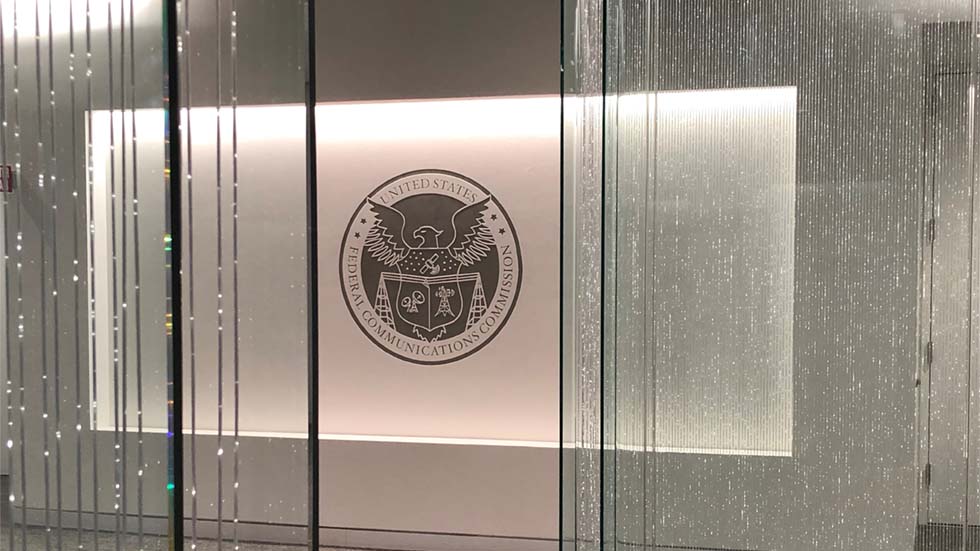Network Affiliates Urge FCC to Reclassify vMVPDs
The ABC, CBS, Fox and NBC affiliate groups told the FCC that vMVPDs should be subject to the same rules as traditional pay TV operators

WASHINGTON, D.C.—Affiliate groups for the four major broadcast networks have asked the FCC to reclassify vMVPDs like YouTube TV so they are subject to the same rules for retransmission consent negotiations as traditional pay TV cable, satellite and telco providers.
The ABC Television Affiliates Association, CBS Television Network Affiliates Association, FBC Television Affiliates Association, and NBC Television Affiliates made the comments in response to the Commission’s proposal to require multichannel video programming distributors (“MVPDs”) to provide rebates to customers who lose access to broadcast programming during contract disputes between programming suppliers and MVPDs.
“Like the National Association of Broadcasters, the Affiliates Associations take no position on whether the Commission should adopt the proposals included in the NPRM [Notice of Proposed Rulemaking],” for rebates and blackout reporting, the affiliates argued.
Instead, they argued that the FCC's plan would not benefit to many consumers without wider changes to the definition of what constitutes a pay TV operator. Currently vMVPDs are not subject to the same rules as traditional cable, satellite and telcos.
“[T]he Affiliates Associations agree with Chairwoman Rosenworcel that consumers should not be forced to pay for services they do not receive,” the affiliates said. “Unfortunately, no matter how the Commission resolves the NPRM, an increasing number of consumers will continue to be forced to do just that when service disruptions occur. That is because, as noted in several comments, traditional MVPDs no longer dominate the multichannel video programming marketplace as they are increasingly displaced by unregulated companies that provide video services over the Internet (so-called `vMVPDs’). As the Affiliates Associations explained at length in their recent Reply Comments in the Commission’s impasse reporting docket, rapidly growing vMVPD services operate outside the retransmission consent framework established by statute and federal regulations due to the Commission’s inexplicable failure to complete its 2014 rulemaking that proposed classifying vMVPDs as MVPDs for purposes of the Commission’s rules.”
“In the meantime, as NCTA correctly notes, the meteoric rise of vMVPD subscribership has coincided with a precipitous drop in subscribers to traditional MVPDs,” the affiliates noted. “Consumers are freely substituting vMVPD service for MVPD service; this makes sense, as the two products are essentially identical but-for the technology by which they deliver programming to their subscribers. (Indeed, MVPDs like DISH and DIRECTV are also vMVPDs.) Typically, these services even enter the customer’s home over exactly the same physical infrastructure. Imposing additional regulations on `traditional’ MVPDs while leaving vMVPDs outside the retransmission consent framework is arbitrary, unfair, and affirmatively harmful to consumers. The Commission should heed the well-reasoned recommendations of the New York State Public Service Commission (the “NYPSC”), which correctly points out that requiring MVPDs to provide rebates during service interruptions while imposing no such obligation on vMVPDs is bad for consumers.”
Station groups have long pushed for reclassification. Currently networks and the major media companies that own them handle retransmission negotiations with vMVPDs. If they were reclassified pay TV operators, station groups would handle the deals, which they claim would boost their revenue.
Get the TV Tech Newsletter
The professional video industry's #1 source for news, trends and product and tech information. Sign up below.
FCC chairwoman Rosenworcel has, however, expressed doubts that the FCC has authority to make the reclassification without new legislation.
The filing also complained about filings from organizations and pay TV operators who have argued that the marketplace for negotiating retransmission consent agreements is “broken” and that the FCC needs to regulate it.
“The retransmission consent market isn’t broken,” the affiliates argued. “It’s functioning exactly as Congress designed it to identify the value of broadcast programming. As Commissioner Simington notes, `[i]t is no sin to get paid, broadcasters produce content worth the price, and blackouts, infuriating though they are, are a feature of price discovery.’ Commission involvement in the marketplace will not improve results and will likely have wide-ranging unintended consequences. The market is changing to be sure, but the only intervention the retransmission marketplace needs now is for the Commission to correctly classify vMVPDs as MVPDs. Accordingly, the Commission should ignore the calls of a small number of commenters to convert this proceeding into an excuse for further regulation of the retransmission consent marketplace.”
The full filing is available here.
George Winslow is the senior content producer for TV Tech. He has written about the television, media and technology industries for nearly 30 years for such publications as Broadcasting & Cable, Multichannel News and TV Tech. Over the years, he has edited a number of magazines, including Multichannel News International and World Screen, and moderated panels at such major industry events as NAB and MIP TV. He has published two books and dozens of encyclopedia articles on such subjects as the media, New York City history and economics.

